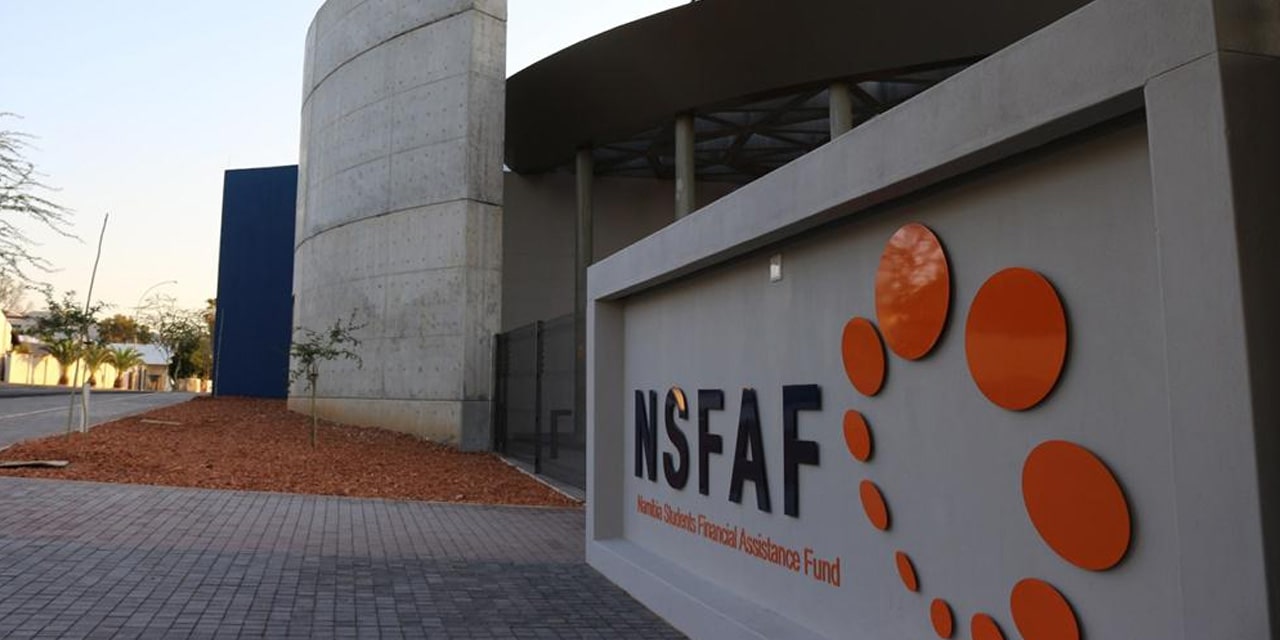Stefanus Nashama
The Namibia Students Financial Assistance Fund (NSFAF) has yet to pay out student loans for approximately 8 000 students, primarily from the International University of Management (IUM) and the University of Namibia (UNAM).
Kennedy Kandume, the acting chief executive officer of the NASFAF, clarified the issue of late monthly payments to beneficiaries at a press conference on Wednesday in Windhoek.
He confirmed that some of the students received their payment on Wednesday, while others will receive their payment over the next few days.
“I am told that 5 618 students received their payments at 14h00 today; this leaves about 2 300 whose payments will be released tomorrow or, at the latest, by Friday. The monthly payment will resume again at the end of June, including new intakes or 2024 awardees,” he said.
Kandume also disclosed that NSFAF student funding has increased from N$520 million in 2013 to N$2.5 billion in 2024.
The number of new intakes has also risen from 10 600 in 2013 to 23 785 students in 2024.
This brings the total number of funded students over the past ten years to 176 310 with a total of N$17.5 billion.
He further explained that between November 2023 and February 2024, the fund received 31 114 applications.
After a thorough review, Kandume reported that 23 785 applications, or 76% of the total, met the funding requirements.
“The fund’s current policy is designed to look after the needy, in other words, those who come from households with a combined gross income of between zero and N$500 000 per annum. The 7 329 applicants whose applications were unsuccessful have recourse to appeals. We have received 2 429 appeal cases, and it is sufficing to say that the appeal process is at the final stage,” he stressed.
Kandume encouraged successful applicants to sign contracts within 60 days of receiving notice and apply for a Bank Windhoek Bank Card, as it is a necessary tool for fund disbursement.
He further advised successful applicants to sign contracts within 60 days of receiving a notification and apply for a Bank Windhoek bank card, as it is necessary for fund disbursement.
The minister of higher education, training, and innovation, Itah Kandjii-Murangi, announced that as of 2024, all continuing and newly awarded students at institutions of higher learning will get an amount of N$10 000 non-tuition fees.
She noted that the financial burden of tertiary education can be daunting, and for many, it is an insurmountable obstacle for young people.
Kandjii-Murangi advocated for an equitable distribution of resources across all sectors.
“Inequity remains a serious challenge in education financing. I believe that to be truly equitable, all students in higher education and training must be treated the same, irrespective of where they are studying,” she stated.
Onesmus Iyambo, the chairperson of the Affirmative Repositioning Student Command (ARSC), praised NSFAF for accepting to fund 76 percent of new applicants for the 2024 academic year.
However, he criticised the fund for delaying students’ non-tuition fees.
“We implore NSFAF to speed up this process to ensure that students receive their money on time so that they can cater for their basic needs,” said Iyambo.
Michael Amushelelo, a social activist, recently declared his intention to start a student protest if the issue remains unresolved.
However, student unions distanced themselves from the protest, indicating that they were still engaging NSFAF and the line ministry to resolve the issue.




